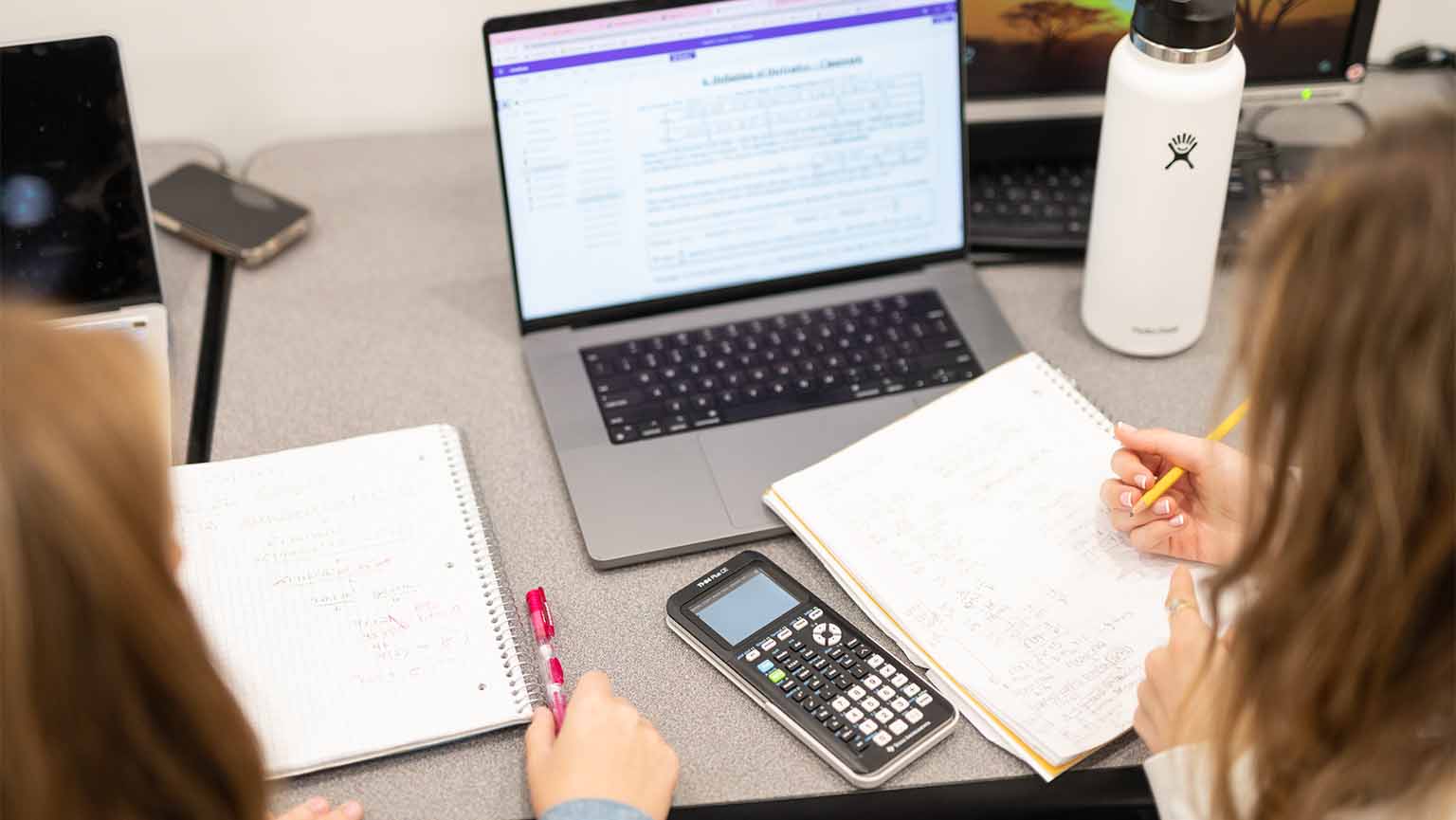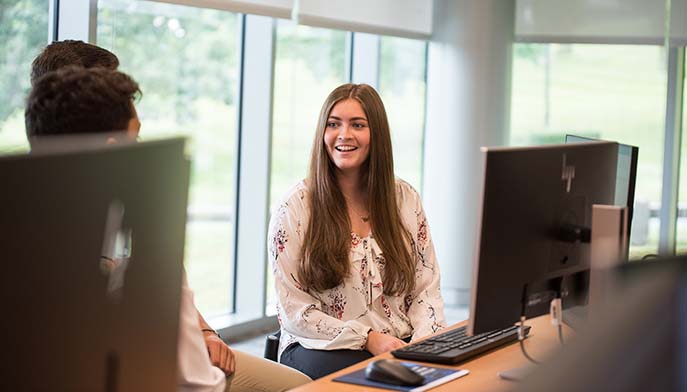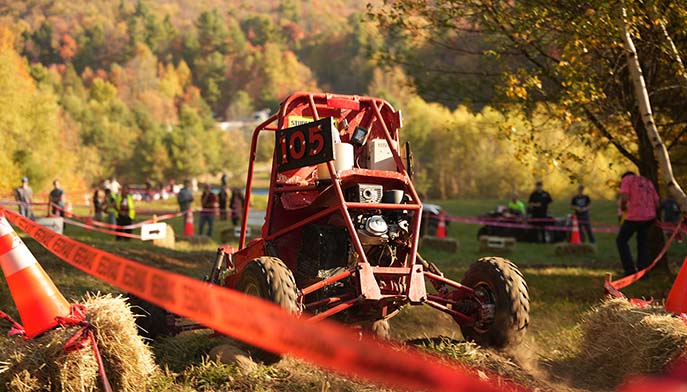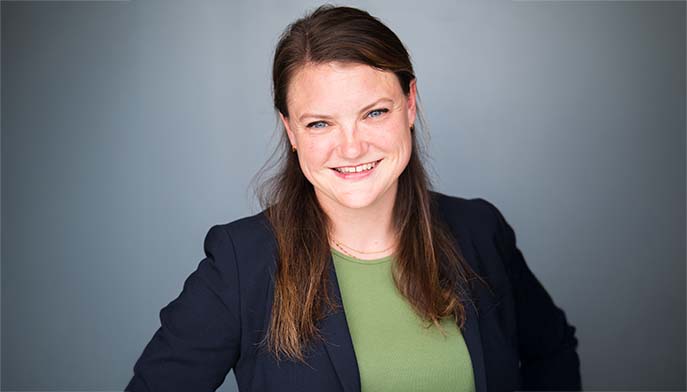Fairfield’s College of Arts and Sciences has worked to build its capacity for student belonging in the sciences.
In 2022, Fairfield was awarded a prestigious $378k grant from the Howard Hughes Medical Institute. This grant– stemming from $8 million awarded to a 14-institution Learning Community Cluster (LCC) which was collectively awarded $8 million– is meant to transform the introductory experience for incoming STEM students. Specifically, the grant seeks to improve retention rates and success for all students, especially for students of color and others who have been traditionally excluded from these disciplines.
According to the HHMI, nearly one million students enter college intending to study a STEM discipline annually, although more than half of those students never complete their degree. The students who leave their degree programs are disproportionately students who are the first in their family to attend college, students who begin at community colleges, and students from historically excluded ethnic and racial groups.
Over six years, the grant allows schools to invest resources into ensuring equity and success for its historically underrepresented STEM students. At Fairfield, programming for science & math students that came as a result of the grant has been tailored to improve academic support and community, career and internship support, and professional development to transform the first-year experience in and out of the classroom.
The most direct results of the grant at Fairfield include the establishment of the Science Center located in the library and the Science and Math Peer Mentoring program in the 2023-24 academic year. The Science Center offers peer tutoring for the foundational science courses for majors, and the Science & Math peer mentoring program pairs incoming students in biology, chemistry, biochemistry, math, and physics with juniors in the major, to provide support and guidance to mentees throughout their first two years in the major.
A representative team of four Fairfield faculty members led the effort: Shelley Phelan, PhD (Department of Biology); Jill Smith-Carpenter, PhD (Department of Chemistry & Biochemistry); Laura McSweeney, PhD (Department of Mathematics); and Angela Biselli, PhD (Department of Physics); with support and input from key divisions across the University.
Marlee Dubin ‘25 benefited from the Peer Mentoring program last year as a mentee. This year, she decided to give back and return to the program as a mentor.
How did the peer mentoring program benefit you?
I sometimes felt disconnected from the University as a commuter student, but knowing there was someone on campus I could talk to was really helpful and comforting. I was really struggling in my general chemistry class and considering changing my major just to avoid taking organic chemistry. One night, I texted my mentor just to say that I was thinking of changing my major and asked if she had any advice. She spent the next hour talking with me when she had tons of finals to study for, and just the fact that she took that time to help me meant a lot. I don't know where I would be now if I hadn't had that talk with my mentor and I'm so thankful for her and her help.
What impact do you hope to have as a peer mentor?
I've faced a lot of challenges in my college experience so far and one of my biggest hopes is that I can use what I've learned from those experiences to help new students who might be in similar situations. I also hope that this support will extend past the mentees assigned to me for the coming year. I want to offer my help not only to them but to their friends and whoever else might need it.
What do you think about Fairfield’s efforts to provide support in STEM topics?
STEM is difficult, demanding, and daunting. There have been countless times when I've felt like I can't keep up or that I'm not cut out for the field, but the support I've received from Fairfield has been incredible. Fairfield recognizes how hard STEM can be, and programs like peer mentorship show that they want to help us get through the difficulties and be successful. Fairfield has made it so easy for me to succeed and continue to love science even when it's hard.
Beginning in the 2024-25 academic year, Fairfield will kick off the STEM Success Series in conjunction with the library staff, the Office of Student Engagement, and Residence Life. Through a series of events and workshops catered to math and science majors, students of all background experiences will be provided resources, guidance, and a sense of community.
In addition, Fairfield will emphasize preparing STEM students to enter the workplace. Through establishing weekly drop-in hours at the Science Center– where students can get help with LinkedIn, resumes, and professional opportunities– and a focus on alumni connections, Fairfield’s STEM students will feel supported and prepared for their professional futures.
Fairfield is committed to the continued success of its STEM students. By enhancing existing support systems and devoting additional support to the personal and professional growth of both students and staff, the Howard Hughes Medical Institute grant is making its mark on Fairfield University.




